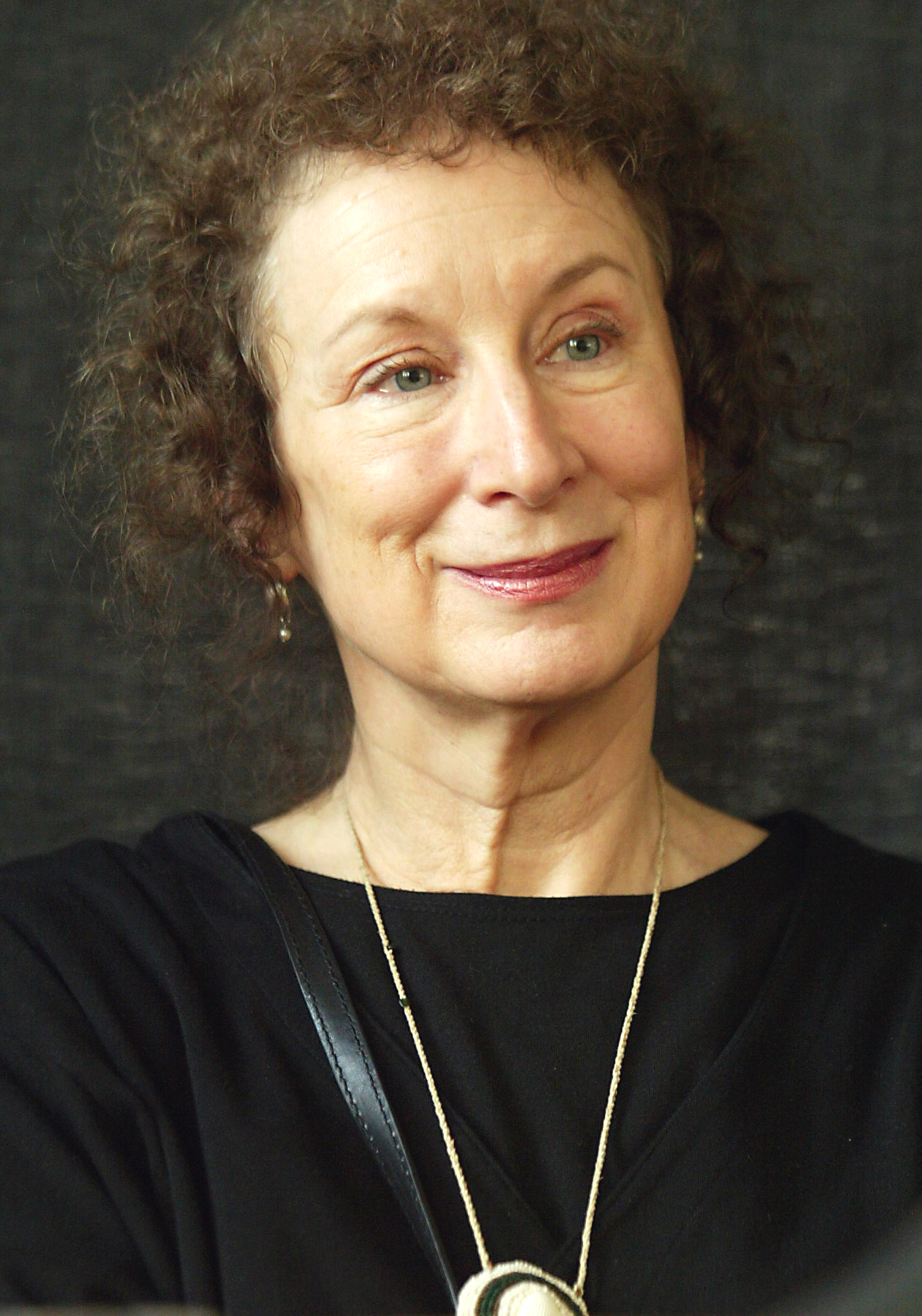Atwood, Margaret (1939-…), is a Canadian poet, novelist, and critic. She has twice won the Booker Prize, the United Kingdom’s most important literary award. Atwood won the prize in 2000 for The Blind Assassin (2000), a complex family chronicle that includes a science-fiction novel within the main story. She won the prize again in 2019 for The Testaments (2019), a sequel to her hugely popular novel The Handmaid’s Tale (1985).

Atwood first gained recognition for her collection of poems The Circle Game (1966). Her many other books of poetry include The Journals of Susanna Moodie (1970), a verse biography of an early Canadian writer; Power Politics (1971), an investigation of the limits of male-female relationships; and Two-Headed Poems (1978), which includes poems about a mother and child. Atwood’s poetry collections also include Selected Poems (1978), Selected Poems II (1986), and Dearly: New Poems (2020).
Atwood gained a wide reputation as a novelist with Surfacing (1972), the story of a woman who searches in the world of nature for the meaning of her life. The Edible Woman (1969) is a satiric comedy about a woman whose personality is being destroyed by her relationship with her fiance. Lady Oracle (1976) is a mix of social satire, psychological analysis, and fantasy. Bodily Harm (1981) deals with a Canadian journalist and her experiences during a revolution in the Caribbean.
Atwood has written several dystopian novels—that is, novels that describe imaginary societies much worse than the real world. The novels are set in the future. In The Handmaid’s Tale, women living in a country called Gilead, formerly the United States, are stripped of all rights. The novel’s sequel, The Testaments, is set about 15 years later. Atwood also wrote a dystopian trilogy that imaginatively creates a future civilization that is almost wiped out by a human-created plague. The trilogy consists of Oryx and Crake (2003), The Year of the Flood (2009), and MaddAddam (2013). In The Heart Goes Last (2015), a young married couple tries to survive in a nightmarish society of the near future.
Cat’s Eye (1988) is a detailed investigation of the forms of autobiography. The Robber Bride (1993) puckishly analyzes feminist politics by rewriting a Grimm’s fairy tale. Alias Grace (1996) is a psychological mystery. The Penelopiad (2005) is based on the famous Greek epic poem The Odyssey. Atwood also wrote a picture book for children, Rude Ramsay and the Roaring Radishes (2004).
Atwood’s stories have been collected in Dancing Girls (1977); Bluebeard’s Egg (1983); Wilderness Tips (1991); Murder in the Dark (1983) and Good Bones (1992), which were published together in 1994 as Good Bones and Simple Murders; The Tent and Moral Disorder (both 2006); Stone Mattress: Nine Tales (2014); and Old Babes in the Wood (2023). Atwood’s selected literary essays were collected in Second Words (1982). She has written an influential book of criticism called Survival: A Thematic Guide to Canadian Literature (1972). She discusses culture, economics, and politics in Payback: Debt and the Shadow Side of Wealth (2008). Hag-Seed (2016) is a retelling of William Shakespeare’s play The Tempest. Margaret Eleanor Atwood was born on Nov. 18, 1939, in Ottawa, Ontario.
